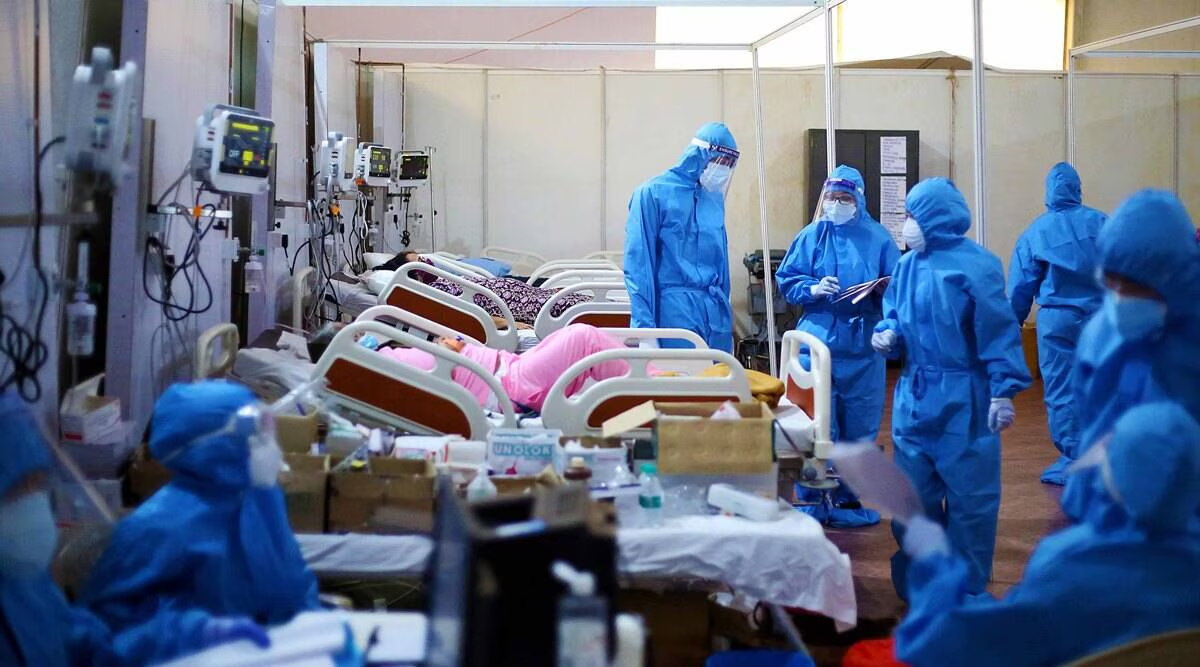New Delhi, 02 June 2025: India has reported a noticeable uptick in daily COVID-19 cases, with the total active caseload rising to 3,758 infections, according to data released by the Union Health Ministry. In the last 24 hours, 2 COVID-related deaths have been reported, raising fresh concerns about potential local outbreaks amid rising travel and seasonal flu-like illnesses.
Kerala Reports 1,400 Cases, Maharashtra Follows With 506
The southern state of Kerala remains the biggest contributor to India’s current surge, reporting 1,400 fresh COVID-19 cases in the past 24 hours. This accounts for nearly 37% of the country’s active infections. Public health officials in Kerala are closely monitoring clusters, especially in urban and semi-urban regions.
Maharashtra, another key state previously hard-hit during earlier COVID-19 waves, recorded 506 new infections, showing a concerning upward trend. Several districts, including Mumbai, Pune, and Thane, have reported spikes in flu-like illnesses and are now conducting rapid antigen and RT-PCR tests to confirm COVID-19 in symptomatic individuals.
COVID-19 Deaths in 24 Hours Raise Alarm
Two COVID-related deaths were reported in the last 24 hours—one from Delhi and one from Tamil Nadu. Both patients were elderly and had comorbid conditions such as hypertension and chronic respiratory illness, which may have exacerbated the disease outcome. While India’s current case fatality rate remains low, experts caution against complacency.
Other States Reporting Active Cases
In addition to Kerala and Maharashtra, several other states have recorded mild surges:
- Tamil Nadu: 360 active cases
- Karnataka: 275 active cases
- Delhi: 245 active cases
- Gujarat: 170 active cases
- West Bengal: 130 active cases
Many of these cases have been reported in urban centres and are believed to be caused by a subvariant of Omicron, which has high transmissibility but generally mild symptoms in vaccinated individuals.
Symptoms, Precautions and Who Is Most At Risk
Doctors are reporting that the current wave is marked by mild respiratory symptoms, including:
- Sore throat
- Fever
- Fatigue
- Headache
- Runny nose
- Occasional shortness of breath in high-risk patients
While most infections are not severe, senior citizens, immunocompromised individuals, and those with existing health conditions are at greater risk of complications.
Health experts continue to advise the public to follow COVID-appropriate behaviour, including:
- Wearing masks in crowded places
- Maintaining hand hygiene
- Avoiding gatherings when symptomatic
- Staying up to date on booster vaccinations
Health Ministry Monitoring Situation Closely
The Union Health Ministry has issued advisories to states reporting a rise in cases. Testing, tracking, and genome sequencing efforts are being ramped up to monitor the virus’s evolution and prevent the spread of any new or highly transmissible variant.
Booster Dose Uptake Remains Low
One of the key concerns in India remains the low uptake of precautionary (booster) doses. According to recent data, less than 25% of eligible adults have taken the second booster dose of the COVID-19 vaccine. Doctors are urging vulnerable populations, especially those above 60 years of age, to come forward for vaccination.
Dr. Randeep Guleria, former director of AIIMS, stated, “The virus is evolving, and so should our immunity. Booster doses are essential, especially for the elderly and people with underlying health conditions.”
India’s Total COVID-19 Statistics at a Glance (as of June 2, 2025)
| Metric | Number |
|---|---|
| Total Active Cases | 3,758 |
| Total Deaths in Last 24 Hours | 2 |
| Top Affected State | Kerala (1,400 cases) |
| Second Highest | Maharashtra (506 cases) |
| Total Cases Since 2020 | 4.5+ crore |
| Total Vaccination Doses Administered | 220+ crore |
Is This a New COVID-19 Wave? Experts Weigh In
While this rise in cases is being monitored carefully, health experts say it’s too early to declare it a full-fledged COVID-19 wave. However, the increase in active cases across multiple states, especially during summer travel and festival gatherings, points to the need for increased vigilance.
According to virologist Dr. Shahid Jameel, “We may be looking at seasonal spikes similar to the flu. COVID-19 is now endemic in many parts of the world, including India. Monitoring new variants and keeping our healthcare systems prepared is crucial.”
India’s current COVID-19 rise may not yet signal a crisis, but it’s a timely reminder that the virus still lingers. With Kerala, Maharashtra, Tamil Nadu, and Delhi seeing spikes, it’s vital to remain cautious, informed, and responsible.
Authorities are not calling for any lockdowns or travel bans, but citizens are being urged to follow basic preventive steps and ensure vaccination compliance.
As India enters another phase in its COVID-19 journey, the key to safety lies in community awareness, quick detection, and strong healthcare coordination.







